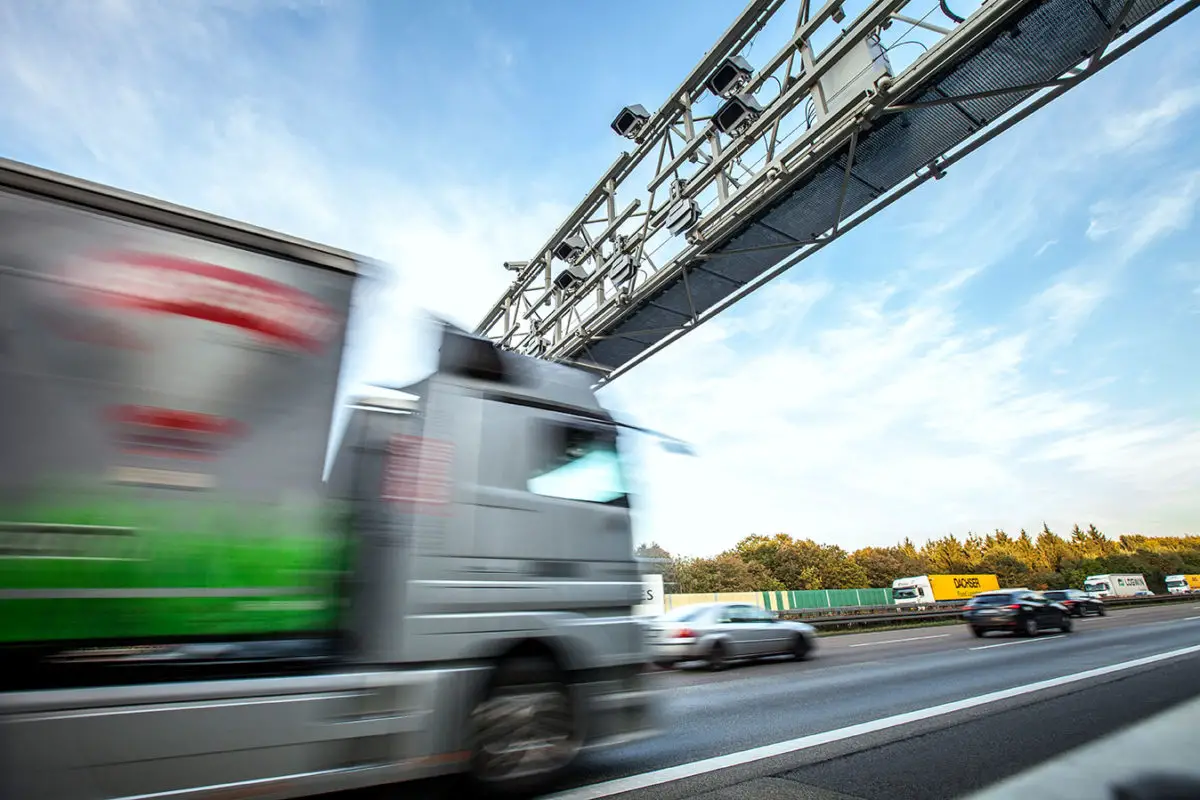If you thought you”™d heard the last of highway tolls, think again.
Connecticut House Democratic leaders proposed a new plan on Nov. 19 that would install highway tolls for trucks only on 12 bridges across the state, as opposed to Gov. Ned Lamont”™s CT2030 initiative, which would have included tolls on 14 bridges for all vehicles.
 The latest transportation plan follows the state Democrats”™ refusing to support CT2030”™s tolls aspect, as well as the state GOP”™s Fiscal Accountability & Sustainable Transportation Reform CT (FASTR CT) plan, FASTR CT would borrow heavily from the state”™s budget reserves, or “rainy day fund,” to pay down pension liabilities, producing an annual savings of $130 million that would then be spent on transportation infrastructure.
The latest transportation plan follows the state Democrats”™ refusing to support CT2030”™s tolls aspect, as well as the state GOP”™s Fiscal Accountability & Sustainable Transportation Reform CT (FASTR CT) plan, FASTR CT would borrow heavily from the state”™s budget reserves, or “rainy day fund,” to pay down pension liabilities, producing an annual savings of $130 million that would then be spent on transportation infrastructure.
House Republicans are reportedly looking to introduce their own proposal over the coming days.
The tolls proposed by House Speaker Joe Aresimowicz and House Majority Leader Matt Ritter drop Route 9 in Middletown and the Merritt Parkway, which does not allow trucks.
The controversial plan to add a toll on the Greenwich stretch of Interstate 684 remains.
The House plan would raise an estimated $150 million per year ”“ less than both CT2030 and FASTR CT and, more importantly, not enough to qualify for low-interest federal loans, as opposed to the other two plans.
Worth noting is that Lamont originally campaigned with a “tolls for trucks only” position before changing it to include all vehicles.
“I am appreciative of House Democrats”™ thoughtful contribution to the discussion about Connecticut”™s economic future and the critical need for investment in our transportation system,” Lamont said. “A guiding principle of CT2030 is a dedicated revenue stream, which in large part comes from out-of-state drivers.
“This proposal adheres to that basic principle, albeit to a lesser extent,” he continued, “but is a concept that the governor has explored in the past and one that should be considered among the other plans.
“Given this addition to the conversation, the plan from Senate Republicans presented last week, and a reported plan forthcoming from House Republicans, I am recommending that all caucuses be prepared to bring these proposals to a meeting in my office as soon as possible,” Lamont said. “Connecticut”™s economic success is vital to our state”™s future and this discussion should be had with all caucuses dedicated to creating a solution.”
Grassroots advocacy group No Tolls Connecticut was unmoved by the House Democrats”™ effort.
“Gov. Lamont campaigned on truck-only tolls and then changed his mind and included all vehicles,” the group said in a statement. “There is little reason to think the same thing wouldn”™t happen again if the state began to toll trucks. With the flip of the switch, the average Connecticut driver could start having to pay tolls.”
Republicans did not have a response at press time, but as they have long opposed tolls of any kind it seemed likely they would reject the latest Democratic proposal.
Senate Minority Leader Len Fasano unveiled the 10-year, $18 billion FASTR CT on Nov. 14, a few hours after Senate President Pro Tem Martin Looney announced his fellow Democratic senators were not willing to back the tolls component of the 10-year, $21 billion CT2030 initiative. The latter called for the installation of 14 toll gantries around the state ”“ something the governor”™s fellow Democrats felt they could not support.
“We developed FASTR CT to show that there is another way to invest in transportation and grow jobs in a manner that is sustainable and accountable to taxpayers ”“ all without tolls,” said state Sen. Kevin Kelly, R-Stratford. “We all agree that we need to invest in transportation to support Connecticut”™s economy and encourage job growth.
“But where I differ from the governor is how to pay for it,” Kelly added. “FASTR CT does not ask for any more from taxpayers. It restores what has been stolen from the transportation plan over the last decade, cuts back on borrowing, reduces debt and leverages federal aid. We can improve our roads, rail and bridges, but we do not need tolls to do it.”
Lamont called the Republicans”™ plan to take money from the rainy day fund “a risky proposition that requires serious evaluation,” while Looney took a more moderate approach, saying that “We are conferring with the Office of Fiscal Analysis and analyzing the numbers in the Senate Republican plan” and that “Connecticut succeeds best when both parties work together.”
But not everyone is ready to work together just yet, according to state Rep. Stephen Meskers, D-Greenwich.
“The Republican plan lacks coherence and any kind of sincere fiscal underpinning,” Meskers told the Business Journal. “Raiding the rainy day fund is irresponsible.”
Although FASTR CT calls for taking $1.5 billion from the $2.9 billion budget reserves pot, the actual hit could be mitigated if the rainy day fund stands at the approximately $2.5 billion by 2024 that the nonpartisan Office of Fiscal Analysis is predicting.
That”™s fine, Meskers said ”“ as long as the economy remains strong.
“If the economy goes south with half of the rainy day fund depleted, the state is going to have to cut back social services and maybe raise taxes to defend itself against a severe economic recession,” he said. “The exposure to an economic downturn for the constituents I represent is heightened.”
Another Democrat, Newtown First Selectman Dan Rosenthal, had previously voiced “deep concerns” about tolls; he too was uncertain about the wisdom of taking money from the rainy day fund.
“It”™s anybody”™s guess when the next recession will occur,” Rosenthal said. “But I”™ve been hearing definitely within the next five years, if not the next couple.” With that threat, he said, “I don”™t know if I can fully endorse” FASTR CT.
However, “The optimist in me says that perhaps this is fertile ground for some bipartisan discussion. I know (FASTR CT) is anathema to some, but perhaps there are green shoots there for some hybrid alternative.”
Meskers added that “I am not a fan of tolls, but I”™m also against any form of free rides,” a reference to the fact that Connecticut is the only state in the region without tolls.
“I wasn”™t elected to represent New York, New Jersey and Massachusetts,” he said. “We need something that will benefit all Connecticut residents in all walks of life.”
How many state-level Democrats are willing to embrace FASTR CT is unclear; many say they are still ruminating on it.
Meanwhile, Meskers said he wasn”™t convinced that CT2030 ”“ and tolls ”“ are dead in the water.
“What the Republicans have proposed is financially reprehensible and irresponsible,” he said. “And I don”™t think our fallback position based on their proposal has been fleshed out yet.”

















If anyone in ct believes that they are gonna put tolls in just for commercial trucks your only being fooled yet again.. Do you really think they will spend all this money to install tolls and then only charge commercial vehicles. This is just a way to get them in and then they will charge all.. I for one don’t even care anymore as I already give half my pay to taxes so I will be leaving when my children finish school.. If tolls go in it will destroy ct not fix it.. it’s basic math tax payers… no one is moving in and everyone I talk to is planning a move…
new tax ned and libs are back at it
NO way it will be ONLY for trucks once its passed and the gantries are built… AND based on past experience – no way CT lawmakers will let the $ be spent on only transportation projects. Just like our temporary income tax, and our gas tax additions which were supposed to be dedicated to paying for roads and infrastructure.. the tolls will increase over and over, the spending will increase elsewhere, roads and bridges will continue to deteriorate.
Stay away from 684 CT unless you plan to take care of that portion of the highway including paving and plowing which NY does for you now.